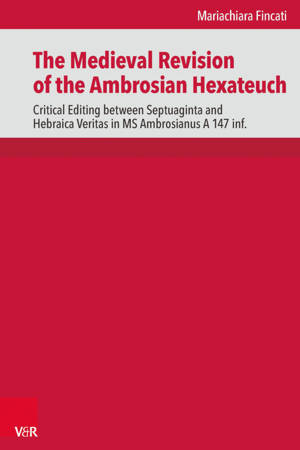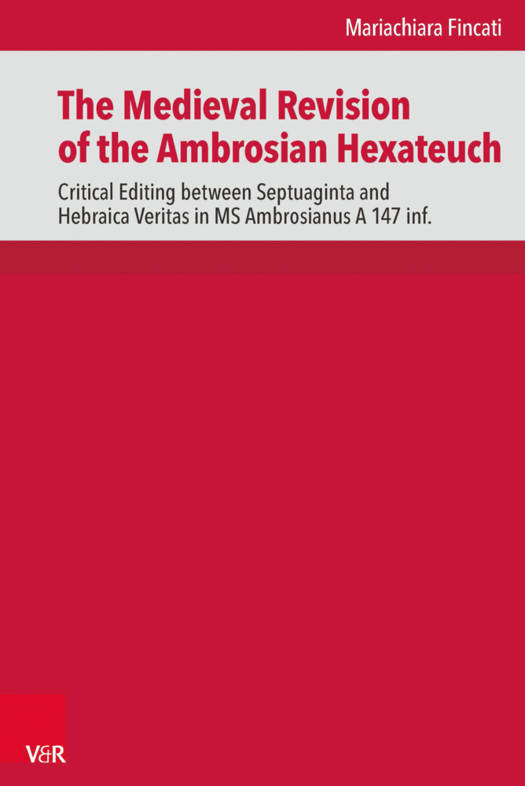
- Afhalen na 1 uur in een winkel met voorraad
- Gratis thuislevering in België vanaf € 30
- Ruim aanbod met 7 miljoen producten
- Afhalen na 1 uur in een winkel met voorraad
- Gratis thuislevering in België vanaf € 30
- Ruim aanbod met 7 miljoen producten
Zoeken
Omschrijving
The uncial Hexateuch, Ms. Ambrosianus A 147 inf., produced at the beginning of the 5thcentury, shows an unusual attitude towards the biblical text on the part of those (people) who restored the codex at the end of the 11thcentury: they not only retraced the ink throughout and replaced some lost sheets, but also revised the biblical text of the Septuagint in order to make it conform to the Masoretic text. Mariachiara Fincati provides a complete analysis of each individual modification introduced by the restorer(s); specifically, Fincati exemplifies this by giving comparisons with extant Jewish and Christian Greek translations of the Bible (hexaplaric variants, Jewish scholia, the text of the so called Graecus Venetus, the Greek text of the Constantinople Polyglott Pentateuch). Finally, Fincati suggests some hypotheses concerning the Christian milieu where the restoration and the revision of the biblical codex may have taken place.
Specificaties
Betrokkenen
- Auteur(s):
- Uitgeverij:
Inhoud
- Aantal bladzijden:
- 456
- Taal:
- Duits
- Reeks:
- Reeksnummer:
- nr. 5
Eigenschappen
- Productcode (EAN):
- 9783525536186
- Verschijningsdatum:
- 18/01/2016
- Uitvoering:
- Hardcover
- Formaat:
- Genaaid
- Afmetingen:
- 160 mm x 237 mm
- Gewicht:
- 1070 g

Alleen bij Standaard Boekhandel
+ 276 punten op je klantenkaart van Standaard Boekhandel
Beoordelingen
We publiceren alleen reviews die voldoen aan de voorwaarden voor reviews. Bekijk onze voorwaarden voor reviews.











